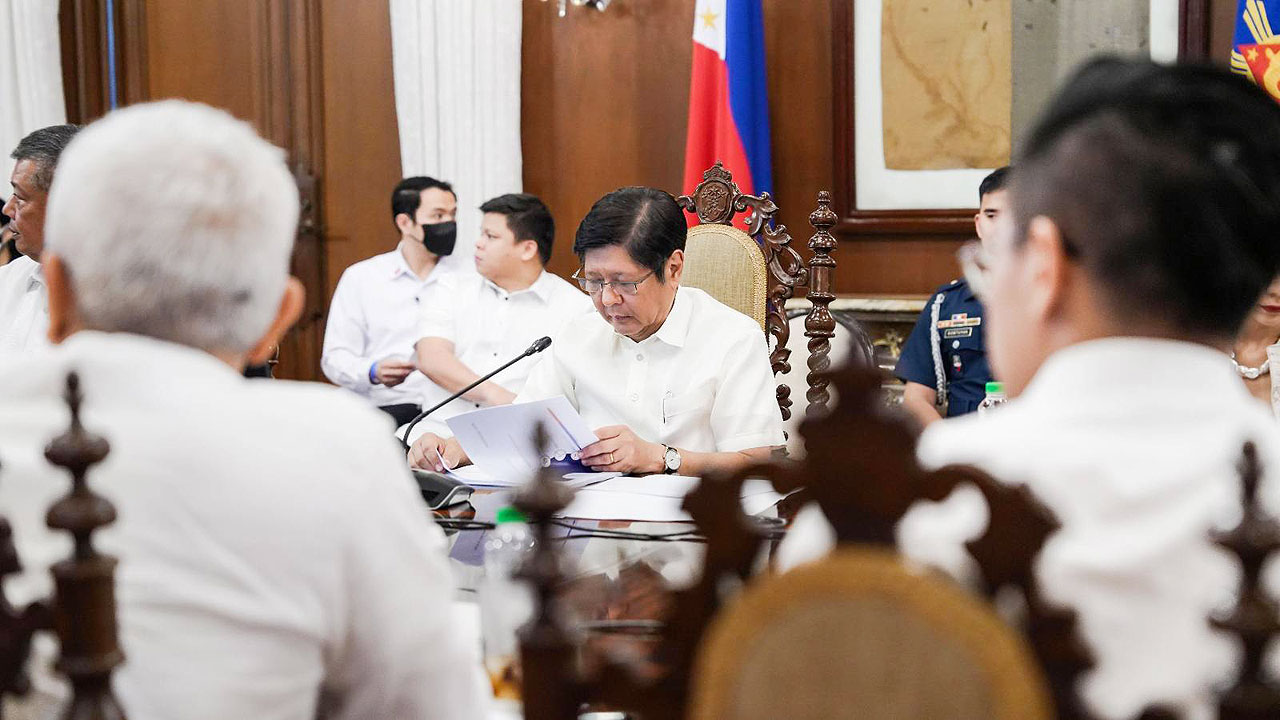
PRESIDENT Ferdinand R. Marcos, Jr. and his Cabinet officials were ensuring that the Congress-approved budget for 2025 is in line with the Constitution, Malacañang said on Thursday, adding that prudence is highly observed amid the country’s limited fiscal space.
Executive Secretary Lucas P. Bersamin made the statement four days before the expected signing of the proposed P6.352-trillion 2025 national budget on Dec. 30.
“The President and the Cabinet are right now (with or without the calls) thoroughly reviewing the various items of the GAA (General Appropriations Act) to make them conform to the Constitution,” he said.
He said the President and Cabinet officials also ensure that the proposed budget “prioritizes the main legacy thrusts of the administration.”
The Presidential Palace last week said the President is expected to veto some items in the budget bill, amid backlash triggered by cuts in the budgets for social services including education and the removal of state subsidy for the Philippine Health Insurance Corporation (PhilHealth).
Mr. Marcos earlier vowed to restore the Department of Education’s (DepEd) proposed budget, particularly the P10-billion funding for its computerization program for 2025. The President, however, justified defunding PhilHealth despite concerns over its fiscal health, citing its reserves.
“The President has been most prudent in programming and spending of our limited fiscal resources,” Mr. Bersamin said in the Thursday statement.
Senator Juan Miguel F. Zubiri, who served as Senate President in the early years of the Marcos administration, on Wednesday urged the Marcos administration to look into the alleged contentious provisions of the budget bill.
He cited concerns over the cut for DepEd’s computerization program, the possible unconstitutionality of the education sector no longer being the priority of the spending plan, and the defunding of PhilHealth.
On Dec. 19, Mr. Marcos said he and Cabinet officials would remold the proposed national budget to the “same shape” submitted by the Executive branch in July.
The President said they may also “assess” items included in the budget via “insertion.”
DepEd reported an obligation rate of 41.9% as of August, ranking 11th among government agencies in terms of budget utilization. Still, the rate is higher than that of Congress, which had the lowest obligation rate at 8.8% but has gotten a P16.35-billion increase in the bicameral conference committee’s version.
The Department of Public Works and Highways’ allocation in the Congress-approved budget rose by P288 billion to P1.1-trillion funding. And as the agency responsible for most of the government’s flagship infrastructure projects became a net gainer, agencies responsible for key social services faced massive cuts.
In the bicam-version of the spending plan, the budget of the Department of Social Welfare and Development declined by P95 billion to P217.3-billion funding, while that of the Department of Health fell by P25.7 billion to P247 billion.
Mr. Marcos last week said the country does not have a considerable amount of savings, “so we need to be careful about where we spend it.”
The P6.352-trillion national budget is equivalent to 22.1% of the country’s gross domestic product, and 10.1% higher than the P5.768-trillion budget this year.
The government seeks to bring its debt-to-gross domestic product ratio down to 60.6% by the end of 2024, and below 60% by 2028.
The ratio stood at 61.3% at the end of September, higher than 60.2% a year earlier but was still below the 60% threshold deemed by multilateral lenders as manageable for developing economies. — Kyle Aristophere T. Atienza
